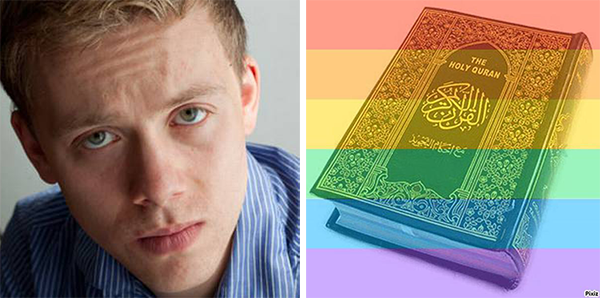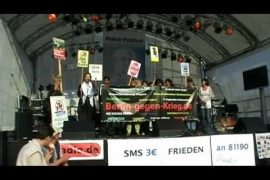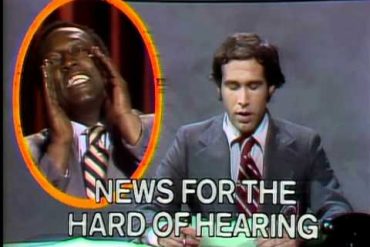Cross posted from the blog, Jacobinism
In a 2012 article for the Guardian, Jonathan Freedland had defended his friend Mehdi Hasan by convicting Hasan’s critics of a strange form of racism:
[Subtle examples] can be confusing, because they often dress up in progressive, Guardian-friendly garb – slamming Islam as oppressive of gay and women’s rights, for example – but the thick layer of bigotry is visible all the same. Call it progressives’ prejudice.
An example of the pitfalls into which this kind of thinking can lead the Left was recently provided by a fractious twitter exchange on the subject of gay rights and Islam involving Freedland’sGuardian colleague Owen Jones [storified here].
The US Supreme Court ruling legalising gay marriage had been handed down a few days earlier and the summer’s Pride festivities had just begun. Profile avatars superimposed with solidarity rainbows swept social media in celebration of both; a touching display of the breadth and depth of support the once-lonely campaign for marriage equality has come to enjoy.
A mischievous variation on this theme was an image of the Qur’an, tweeted by the ex-Muslim writer and activist Saif Rahman, which a twitter user calling himself ‘Colt’ then gave a speculative punt in the direction of Owen Jones:
Owen, give this a shove for those LBGT muslims out there @OwenJones84 #solidarity https://t.co/Y6jPmVC3Pg
— Colt (@_coltseavers) July 1, 2015
When Rahman asked why this had not been dignified with a response, Jones answered: “Because I think this is self evidently trying to provoke [rather] than win people over to LGBT rights? Are you LGBT (genuine question)?”
Owen Jones is a notoriously thin-skinned and bad-tempered tweeter, so the petulant tone was hardly a surprise. But I would imagine Jones is also understandably anxious to avoid accusations of bigotry from people like Jonathan Freedland.
The difficulty here is that Islamic homophobia is not a mere calumny or figment of ‘progressive prejudice’. Muslims are not simply the hapless victims of Western prejudice, as Jones and Freedland apparently prefer to believe; they are individuals perfectly capable of holding bigoted views of their own, which it is surely every progressive’s responsibility to oppose.
A 2006 Populus poll conducted for Policy Exchange found that 61% of UK Muslims thought “homosexuality is wrong and should be illegal”, a figure consistent across genders and social class. This figure is admittedly nearly 10 years old, but the Populus also reported that younger generations were less tolerant on this issue than their elders, which does nothing to inspire optimism that things have been moving in the right direction.
Nevertheless, their survey did provide a reminder that UK Muslims’ views on homosexuality – whilst profoundly dispiriting – are not uniform. A majority appear to be deplorable and reactionary, but a minority – evidenced by projects like the Inclusive Mosque Initiative – are enlightened and progressive. The aim of gay rights activism, surely, is to stigmatise the former and empower the latter. And on this point, Colt’s tweet to Jones was specific.
If Rahman’s original image of the Qur’an was intended to mock the incompatibility of modernity and the Qur’an’s 7th Century ideas, Colt’s additional reference to LGBT Muslims and solidarity invites another interpretation: that LGBT Muslims living in communities and families hostile to the open expression of their sexuality deserve support in their struggle for acceptance under a modernised, gay-friendly Islam.
But, sensing a trap, Jones reflexively counterattacked with a spurious distinction between ‘provocation’ (bad) and advancing LGBT rights (noble), before accusing Colt and Rahman of the former.
To see a self-professed radical advance an argument of such painful conservatism makes me cringe for Jones. Had his activist forebears afforded reactionary attitudes the respect he demands from contemporary critics of Islam, he would not enjoy the freedoms he takes for granted today.
The overthrow of religious authority in the West – a necessary precondition of sexual liberty – was not achieved simply by the polite suggestion of a rationalist alternative. It also required the unrelenting mockery of its Enlightenment enemies who took great pleasure in making its ideas look ridiculous.
Nor was the later movement for gay liberation and acceptance bashful about provoking its opponents, for whom its mere existence was an affront. Provocation and offence were understood by activists to be engines of change, not its regrettable by-products.
In 1971, for instance, radical Gay Liberation Front activists in drag invaded a meeting of Mary Whitehouse’s Christian pressure group, the Nationwide Festival of Light, held at Westminster’s Methodist Central Hall, and began kissing one another and unfurling sloganeering banners before shutting off the power. The queer art, literature, music, theatre, and cinema that proliferated with the rise of gay activism likewise revelled in its capacity to generate traditionalist outrage.
Had he been alive, would Owen Jones have pursed his lips in disapproval and defended the sensibilities of offended conservative Christians?
But times have changed, and in the process radical opposition to reactionary inter-cultural ideas seems to have mutated into a perverse solidarity. Multiculturalism’s emphasis on the need to show deference to cultural and religious difference, and the concomitant empowerment of all kinds of identity politics, has meant that a declaration of offence taken is no longer presumed to be the start of a discussion but its final word.
“Are you LGBT?” Jones had demanded of Rahman in his first tweet. An irrelevance to the matter at hand, but a question of pressing importance to Jones who – as an openly gay man – reserves for himself the right to decide who may and may not advocate for gay acceptance and under what circumstances.
“If you want to be a straight ally, welcome,” Jones instructed Rahman. “But I’m done with people only mentioning LGBT rights when Islam is involved.” When an Indian ex-Muslim calling himself ‘Desi Liberal’ pointed out that it was Jones who was proving himself to be a feckless ally by downplaying Islamic homophobia so as to comport with politically correct niceties, Jones retorted: “I’m not going to be lectured on LGBT rights by a straight man. Incredible.”
It is undercover of this politics of identity and broad-minded respect for other cultures that, as a non-Muslim, Jones excuses himself from criticising even the most regressive elements of another minority group. In his own mind, it is not his business to do so.
So, instead, he declares his unconditional and indiscriminate solidarity with all Muslims, irrespective of how hostile a given individual’s views and values may be to his own. And, consequently, he finds himself objectively defending the Islamic religious right from the pressures of progress at the expense of those they victimise.
The message for LGBT Muslims may be the unintended consequence of a well-meaning impulse, but it is clear, just the same: gay liberation for me, but not for thee.
Related articles
- If The Guardian dislikes the privately educated, why does it hire so many of them? (blogs.spectator.co.uk)






